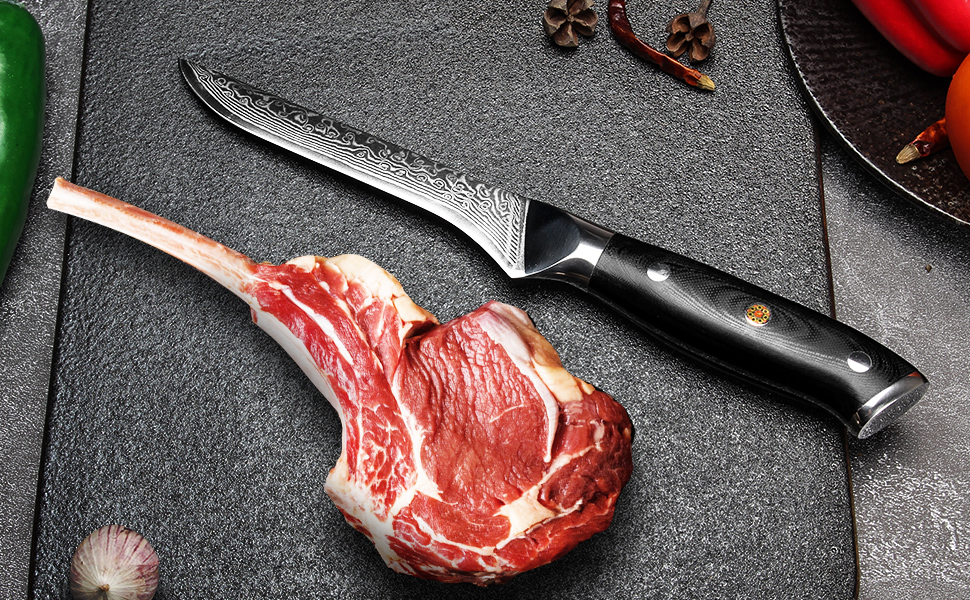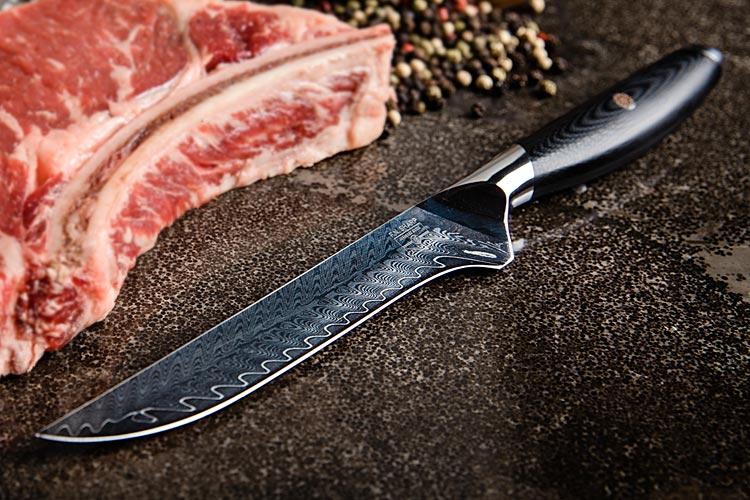When it comes to kitchen tools, a boning knife is indispensable for anyone who loves cooking, especially for those who frequently work with meat. However, one common issue that many kitchen professionals face is rust prevention. Keeping your boning knife in top condition requires some attention and care, particularly to prevent rust, which can compromise both the knife’s efficiency and your health.

Understanding the Importance of Rust Prevention
Rust is not only unsightly but can significantly reduce the effectiveness of your boning knife. Rust can make the knife dull and less effective at cutting, and in some cases, it can pose a health risk if it contaminates the food. Therefore, understanding how to prevent rust is crucial for maintaining the longevity and performance of your knife.
What Causes Rust on Boning Knives?
Several factors contribute to the formation of rust on your boning knife. Exposure to moisture, improper storage, and lack of regular maintenance can all lead to rust. It’s essential to be aware of these causes so that you can take preventive measures effectively.
Moisture Exposure
Moisture is the primary cause of rust on boning knives. Whether it’s from washing or from the natural juices of the meat, moisture left on the knife can lead to oxidation, resulting in rust.
Improper Storage
Storing your knife improperly, such as in a damp drawer or without any protection, can expose it to elements that promote rusting. It’s crucial to store your knife in a dry place and ideally in a sheath or a knife block to protect it from moisture.
Effective Methods for Rust Prevention
Preventing rust on your boning knife involves a combination of cleaning, drying, and storage practices. Here are some effective methods to ensure your knife remains rust-free.
Regular Cleaning
Cleaning your boning knife immediately after use is essential. Use warm water and mild soap to clean the blade, making sure to remove any residue that might hold moisture. Avoid using abrasive cleaners or pads, as they can scratch the blade and promote rusting.
Thorough Drying
After washing, dry your knife thoroughly with a clean towel. Pay special attention to the blade and handle junction, as moisture tends to accumulate there. Allowing your knife to air dry can lead to rust, so always dry it manually.
Proper Storage
Store your boning knife in a dry, cool place. Consider using a magnetic knife strip or a knife block for easy access and protection. Using a knife sheath is also an excellent way to keep your knife safe from moisture and other elements.
Regular Maintenance
Regularly maintain your knife by honing it to keep the edge sharp and less prone to damage. Additionally, oiling the blade with food-safe mineral oil can provide a protective barrier against moisture.
Choosing the Right Knife
When selecting a boning knife, choosing one made from high-quality materials can make a significant difference in rust prevention. Stainless steel knives, for example, are less susceptible to rust, but they still require proper care.
Materials Matter
Opt for a knife made from high-carbon stainless steel, which offers a good balance of sharpness and rust resistance. While no material is entirely rust-proof, high-quality materials can reduce the maintenance needed.
Design Considerations
Knives with a full tang design offer better balance and durability, which can help prevent damage that might lead to rusting. A well-designed handle can also improve grip and reduce the risk of accidental slips that might cause damage to the blade.
Conclusion
In conclusion, boning knife rust prevention is essential for maintaining the longevity and performance of your knife. By understanding the causes of rust and implementing effective prevention methods, you can ensure your knife remains in excellent condition for years to come. For more insights on selecting the best knife for your needs, check out boning knife guide.

FAQs
How often should I clean my boning knife?
It’s best to clean your boning knife immediately after each use to prevent rust and maintain its sharpness.
Can I put my boning knife in the dishwasher?
It’s not recommended to put your boning knife in the dishwasher, as the harsh detergents and high temperatures can damage the blade and promote rusting.
What should I do if my knife starts to rust?
If rust appears, gently scrub the affected area with a mixture of baking soda and water using a soft cloth. Rinse and dry thoroughly, then apply a thin layer of mineral oil.
For more detailed information about what makes a good boning knife, visit Dalstrong’s guide.
This article contains affiliate links. We may earn a commission at no extra cost to you.


